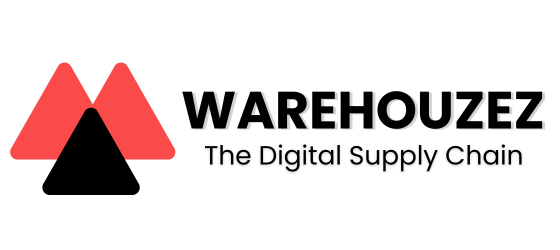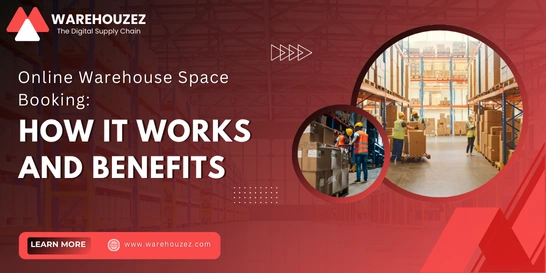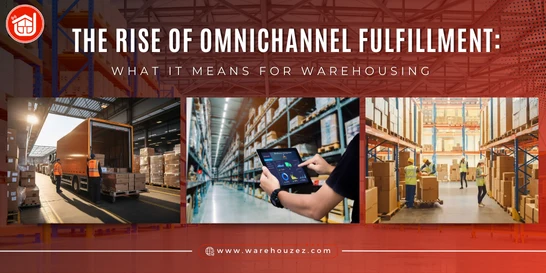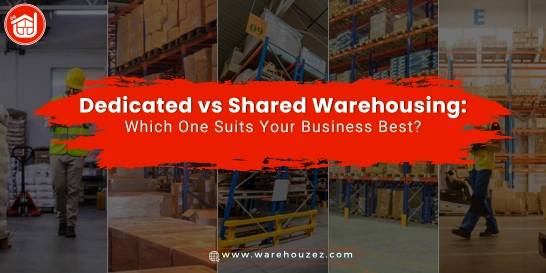What is 4pl: Its Importance, Benefits, And Contrasts With 3pl
What is 4pl: Its Importance, Benefits, And Contrasts With 3pl
In today's complex global supply chain landscape, businesses are constantly seeking innovative ways to streamline their logistics operations and enhance efficiency. One such emerging concept is 4PL, or Fourth Party Logistics. While the concept of third-party logistics (3PL) is well-known, 4PL takes it a step further by providing end-to-end supply chain management solutions.
In this blog post, we will delve into the importance and benefits of 4PL, as well as compare it with 3PL to better understand the key differences and contrasts between the two logistical approaches. Whether you're a business owner looking to optimize your supply chain or simply curious about the evolution of logistics, this blog will provide valuable insights into the world of 4PL and its role in modern-day business operations. Let's get started!
Introduction to Fourth-Party Logistics (4PL)
Fundamentally, Fourth-party logistics (4PL) can be defined as an extension of the well-known concept of third-party logistics (3PL). However, 4PL takes the management of the supply chain to a whole new level. In simple terms, a 4PL provider acts as a central orchestrator, coordinating with multiple carriers, 3PLs, and other service providers to optimize the entire supply chain. Unlike 3PL, which focuses on operational aspects such as warehousing, distribution, and transportation, 4PL takes a strategic approach. It offers end-to-end supply chain management services, including procurement, storage, inventory management, demand planning, transportation, order fulfillment, and even customer service. By leveraging advanced technologies, analytics, and industry expertise, a 4PL provider enables businesses to achieve better visibility, efficiency, and cost savings in their supply chain operations.
The Importance of Fourth-Party Logistics in Supply Chain Management
Undeniably, fourth-party logistics is an emerging concept in the field of supply chain management that has gained significant traction in recent years. It refers to the outsourcing of the entire logistics-related task to a 4PL provider, who acts as a strategic partner and coordinates all the activities of various 3PL providers. The importance of 4PL cannot be overstated in today's complex and globalized business environment. By consolidating and managing the entire supply chain process, 4PLs bring unparalleled expertise, efficiency, and innovation to the table. They possess the resources and knowledge to optimize logistics operations, streamline processes, and reduce costs. Additionally, 4PL providers enable businesses to focus on their core competencies by taking the burden of managing logistics off their shoulders, allowing them to grow and expand their operations. In a time when customer expectations are higher than ever, 4PLs ensure seamless coordination and visibility across the supply chain, resulting in improved customer satisfaction and retention. With their advanced technologies, analytical tools, and industry insights, 4PL providers play a crucial role in enhancing overall supply chain performance and driving business success.
Benefits of Fourth-Party Logistics (4PL) Services
When it comes to the benefits of utilizing 4PL services, the benefits are abundant and encompass cost-saving opportunities, enhanced customer satisfaction, and increased efficiency.
Let's go through the benefits of fourth-party logistics:
Cost Savings
By outsourcing logistics-related operations to a 4PL service provider, companies can achieve significant cost savings. 4PLs leverage their expertise, relationships with suppliers, and economies of scale to negotiate better deals, optimize routes, and reduce transportation costs. They can also offer dedicated or shared warehousing and distribution centers, enabling companies to save on facility costs.
Increased Efficiency
It is a well-known fact that fourth-party logistics service providers specialize in managing complex supply chains and coordinating the activities of multiple 3PL providers. By integrating and optimizing the entire supply chain process, 4PLs can enhance efficiency, reduce costs, and streamline operations. They have the expertise and resources to leverage technology, data analytics, and global networks to identify and address bottlenecks, improve inventory management, and optimize transportation routes, resulting in enhanced efficiency in the supply chain.
Industry Expertise and Experience
Another advantage is that 4PLs bring extensive knowledge and experience in managing complex supply chains across various industries. With their in-depth understanding of industry-specific challenges and best practices, they can offer tailored solutions that enhance efficiency and performance.
Flexibility and Scalability
When working with a 4PL service provider, businesses can experience greater levels of flexibility and scalability. 4PLs are well-equipped to handle fluctuations in demand or sudden changes in customer requirements. They have the resources, network, and capabilities to quickly scale up or down logistics operations, ensuring businesses can meet customer expectations and remain competitive in their respective industries.
Latest Technologies
In today's technologically-driven world, leveraging the latest technology is imperative. 4PLs utilize the latest technological tools and solutions to streamline supply chain operations. These technologies, such as advanced analytics, artificial intelligence, and cloud-based platforms, enable real-time visibility, automation, and data-driven decision-making. By leveraging these technologies, companies can achieve greater accuracy, agility, and cost-effectiveness in their logistics processes.
A Comprehensive Comparison Between Third-Party Logistics (3PL) and Fourth-Party Logistics (4PL)
Both third-party logistics (3PL) and fourth-party logistics (4PL) are key players in the supply chain management industry. 3PL refers to the outsourcing of logistics-related activities to a third-party provider. These providers offer a wide range of services, such as transportation, warehousing, inventory management, and distribution. They often act as intermediaries between the manufacturer and the end consumer, handling all logistical processes efficiently. On the other hand, 4PL takes logistics outsourcing to the next level. It is a more integrated and strategic approach to supply chain management. 4PLs operate as a single point of contact, overseeing the entire supply chain and synchronizing multiple 3PL providers. Their main focus is on strategic planning, network optimization, and leveraging technology to achieve a seamless supply chain flow. The major difference between the two lies in their level of involvement and scope of services. While 3PLs focus on specific logistical functions like storage and transportation, 4PLs often take a holistic approach, managing the entire supply chain from beginning to end.
Key Differences Between Third-Party Logistics and Fourth-Party Logistics
1. Scope of services: 3PL typically offers a specific set of logistics services such as transportation, warehousing, inventory management, and order fulfillment. In contrast, 4PL takes a broader perspective, focusing on end-to-end supply chain management, strategic planning, optimization, and coordination of all logistics activities.
2. Responsibility: While 3PL providers handle certain logistics functions for clients, 4PL providers have a higher level of responsibility and act as the single point of contact for managing the entire supply chain. They are accountable for the overall performance, efficiency, and cost-effectiveness of the logistics network.
3. Flexibility: 3PL providers offer customizable solutions based on the specific needs of clients, allowing them to scale up or down their logistics operations as required. 4PL providers, on the other hand, offer more flexibility in terms of optimizing the supply chain and adapting it to changing market conditions, customer demands, and global trends.
Final Thoughts
To offer concluding remarks, fourth-party logistics is an advanced approach to supply chain management that goes beyond the services provided by 3PLs. It involves a strategic partnership between a company and a service provider that takes complete control of the supply chain operations. The importance of 4PL lies in its ability to optimize the entire supply chain, reduce costs, enhance efficiency, and provide valuable insights through advanced technology solutions. The benefits of 4PLs include increased agility, improved customer satisfaction, and reduced risk. In contrast to 3PL, 4PL provides a more comprehensive and integrated solution that caters to the evolving needs of businesses in an ever-changing market. Embracing the concept of fourth-party logistics can help companies gain a competitive edge and thrive in today's complex and dynamic business environment.



